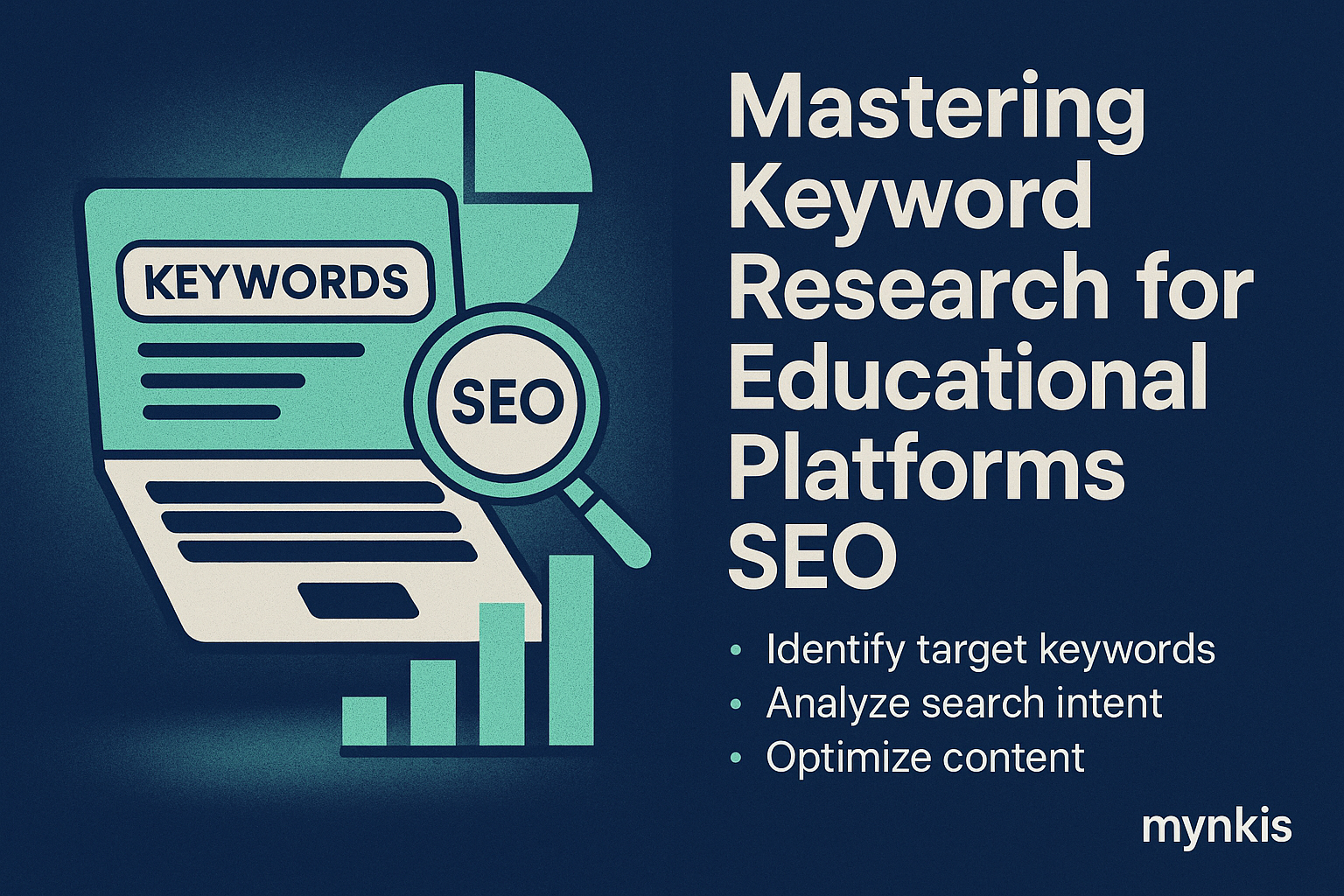Schedule a Demo
In the world of education, digital presence is key. Whether it's through a custom learning management system or a university website, having an effective SEO strategy can mean the difference between being discovered or overlooked. In my work with various educational institutions, I've seen firsthand how well-targeted keyword research can significantly boost search traffic and engagement. Today, let's explore how to harness the power of keyword research to elevate your educational platform's visibility.
At its core, keyword research involves identifying the phrases and terms that potential users are entering into search engines. For schools and universities, this means understanding the language that prospective students and their families use to find educational resources. Tools like Google Keyword Planner can provide insights into search volumes and competition levels, guiding you on where to focus your SEO efforts.
Several tools are at your disposal to help refine your SEO strategy. Google Keyword Planner is a go-to for many because it's free and directly integrates with Google Ads. SEMrush, on the other hand, offers more detailed analytics and can give you an edge with its competitive analysis features. Ahrefs is another powerful tool that provides backlink analysis, crucial for understanding how your site ranks. Each tool has its strengths, and choosing the right one can be pivotal to your SEO success.
Google Keyword Planner remains the starting point for many SEO professionals. I've guided several schools through the process of setting up campaigns on Google Ads using this tool, and the insights gained are invaluable. Not only can you discover what terms are commonly searched, but you also gain an understanding of how competitive those terms are. For schools, this is particularly useful for identifying niche phrases that can attract the right audience without excessive competition.
When it comes to delving deeper into your SEO strategy, SEMrush is an essential tool. Its keyword magic tool helps you explore long-tail keywords, which can be highly beneficial for universities targeting specific programs or courses. In my experience, institutions that utilize SEMrush often see an improvement in their site's ranking, especially when they focus on keywords with less competition but high relevance to their audience.
Ahrefs stands out for its comprehensive backlink analysis, a key factor in SEO success. For educational institutions, understanding which websites link back to your content can guide your outreach and content strategies. In my consultations with colleges and universities, I've seen how insights from Ahrefs can help improve domain authority and attract higher-quality search traffic to custom learning management systems.
Once you've identified your target keywords, integrating them into your content strategy is the next step. This goes beyond simply inserting keywords into your text. It's about understanding the intent behind the searches and crafting content that meets those needs. For example, if your target keyword is "online MBA programs," your content should not only mention this phrase but also provide detailed information about your MBA offerings, highlighting unique features and testimonials from current students.
SEO is not a set-it-and-forget-it affair; it requires ongoing monitoring and adjustment. Tools like Google Analytics can show you how your keywords are performing in terms of traffic and engagement. I often recommend to my clients in the education sector that they regularly review these metrics and adjust their keyword strategy accordingly. This may involve targeting new keywords, refining content, or even focusing on different areas of the educational offerings.
To illustrate the impact of effective keyword research, consider a small private college I worked with. Before optimizing their website for SEO, they struggled to attract prospective students to their environmental science program. We conducted thorough keyword research and discovered that phrases like "sustainable living degree" and "green career opportunities" were gaining traction. By incorporating these into their site's content, we saw a significant increase in search traffic, and their program gained more visibility.
Custom learning management systems (LMS) present unique SEO challenges and opportunities. These platforms often serve as repositories for course content and resources, which can be optimized for SEO to reach a wider audience. I've found that embedding keywords into course titles, descriptions, and even discussion forums can significantly enhance visibility. Additionally, ensuring that your LMS is search engine friendly can improve its ranking for educational-specific queries.
The keyword strategy may differ significantly depending on the educational level your institution serves. For example, keywords associated with elementary education may focus on terms like "child-friendly learning resources," whereas higher education might target "doctoral programs" or "research opportunities." Tailoring your keyword research to your specific audience is crucial for connecting with potential students and their parents at different stages of their educational journey.
One of the challenges in keyword research is balancing high search volume with relevance to your institution. While it's tempting to target broad terms that drive traffic, they may not attract the most appropriate audience. For instance, targeting "online education" might bring visitors, but "online STEM education" could attract those specifically interested in your tech-focused programs. I always counsel educational platforms to aim for a blend of volume and specificity in their keyword choices.
For many schools and universities, local SEO plays a crucial role. Incorporating local keywords into your strategy can enhance visibility within your community or region. For example, using terms like "best university in [City]" or "local high school [City]" can help you connect with a geographically relevant audience. Local SEO isn't just about online visibility; it's about becoming a known entity within your immediate educational ecosystem.
Lastly, SEO is an ever-evolving field, with new trends and algorithm updates constantly changing the landscape. Educational institutions must stay informed about these developments to maintain their search ranking. I often guide my clients to reputable resources like Search Engine Land or Moz to keep up with the latest in SEO. Adapting to these trends ensures that your website remains competitive and continues to attract the traffic it deserves.
